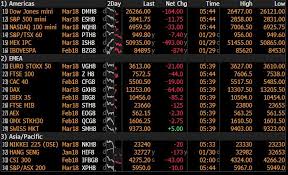Will Your Stock Choke If Your Company’s Too Woke?

You don’t have to watch Gillette’s recent commercial for long to realize it’s no typical shaving ad. There are no shots of blades gliding through lather or water splashing on a freshly trimmed face. Instead, the ad shows men standing up to bullies and sexual harassers, all part of a message about resisting “toxic masculinity.”
It’s more social plea than sales pitch—and it’s the kind of gesture that’s far more common now than it was a decade ago. Whether it’s Nike’s ads last fall supporting quarterback turned activist Colin Kaepernick, or Dick’s Sporting Goods’ decision last year to restrict its own gun sales, companies are more willing to take sides on politically divisive issues. And such stances can be more than acts of principle: They can boost sales, luring customers who share the same views—albeit while alienating those who don’t—and helping brands stand out in crowded product categories.
Whether shareholders can cheer the returns is less clear-cut. Edgy statements often chase skittish investors away in the short term: The stocks of Dick’s, Nike, and Gillette parent Procter & Gamble fell sharply immediately after they made the moves described above. But Nike subsequently reported blockbuster growth, and all three stocks rebounded to outperform the S&P 500 through mid-February. (P&G hit an all-time high.) That’s a small sample size, to be sure, but it sends a message: Under the right conditions, speaking up can boost sales and customer loyalty, without weighing down share prices.
Assessing The Chances Of Those Who Take Stances
These three companies have made headlines for their messaging on divisive political and social issues. Here’s how their core businesses are faring.
NIKE
Last September, when Nike featured Colin Kaepernick in ads marking the 30th anniversary of its “Just Do It” campaign, customers who had viewed Kaepernick’s pre-NFL-game protests as anti-patriotic decried the company. But revenue jumped 10% in that quarter. Nike’s e-commerce site now accounts for 15% of sales, and Jamie Merriman, a Bernstein analyst, notes that its profit margins improve as the number of online buyers grows.
STARBUCKS
The coffee giant’s stock has seesawed for years in response to the company’s outspokenness on same-sex marriage, racial relations, and much more. Still, shares are up 94% over the past five years, far outpacing the S&P 500. Expansion in China and in U.S. suburbs should sustain Starbucks’ sales growth. Yet to be determined: the financial impact of retired chairman Howard Schultz’s presidential ambitions.
DICK’S SPORTING GOODS
After the Parkland shootings, Dick’s stopped selling assault rifles and increased its minimum age for gun purchases to 21. Some gunmakers severed ties, and Dick’s stock slumped, owing in part to weak hunting-equipment sales. Dick’s has struggled as well in athletic apparel, where many brands it offers also sell direct online. But if it can boost its own e-commerce, Dick’s could reward investors who buy in at today’s low valuations.
Evolving consumer attitudes help explain the pattern. According to a recent poll by public relations firm Edelman, roughly 50% of consumers have chosen to buy a brand (or not) because of the business’s position on a controversial issue. Melissa Dodd, a public relations professor at the University of Central Florida, says there’s a widespread perception that government lacks the ability to address the issues most important to consumers—so consumers are looking to businesses to fill that role.
Which companies benefit from speaking out? No two situations are alike, but some patterns are emerging. If a company has a reputation for social engagement or takes a stand that’s clearly in line with its brand’s philosophy, sales and shares are more likely to get a lift. If a company makes a statement that doesn’t match the way people already feel about it, shareholders are less likely to benefit. Likewise, if a stance is more reactive than proactive: Delta Air Lines won praise from some corners when it ended a discount for National Rifle Association members after a school shooting in Parkland, Fla., last year. But the airline framed it as a one-time move, and the ensuing publicity didn’t have a big impact on either ticket sales or the share price.
Roughly a month after Gillette’s toxic-masculinity message went live, it’s too early to discern its long-term impact on P&G’s stock. (For more about other challenges facing P&G, see our feature on page 104.) Shaving products such as Gillette’s accounted for only 10% of P&G revenue in fiscal 2018. But the company owns big consumer brands that are targeted predominantly at female buyers, including Venus razors and Always feminine-care products, and has previously run ads conveying its commitment to gender equity. The Gillette ad could be seen as doubling down on that stance—and a positive reaction among women could spill over to benefit other brands, according to Daniel Korschun, a Drexel University professor.
If that happens, Korschun says, P&G will likely henceforth be “held to a higher standard” on social issues, risking a backlash if it changes course. Once a company gets political, in other words, backtracking can be costly—for management and shareholders alike.

